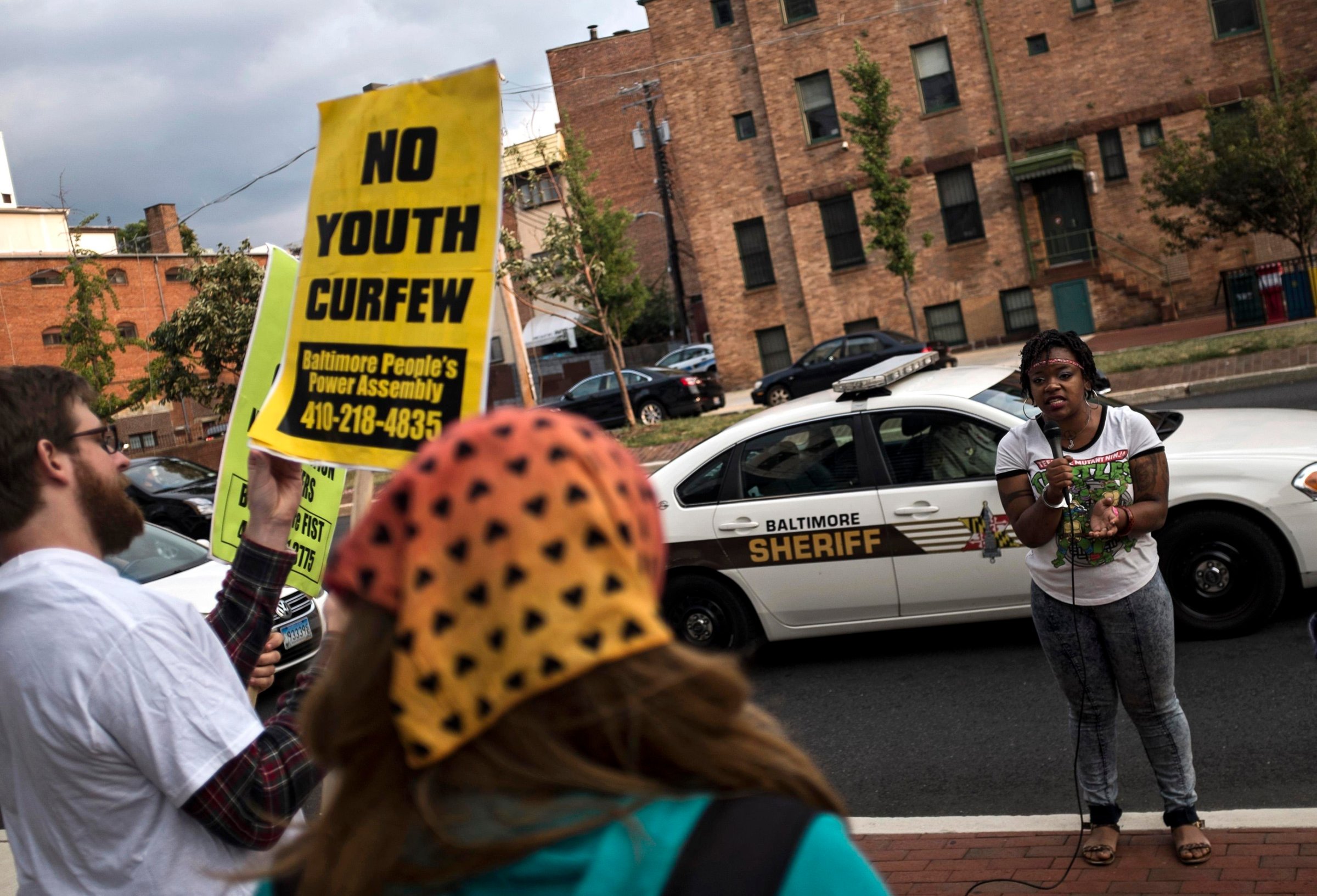
A Baltimore measure tightening its curfew policy to make it among the most stringent in the United States went into effect Friday amid protests and uproar. But even as a majority of the biggest cities across the country—including nine out of the 10 most populated—maintain curfew policies, experts say such efforts are ineffective at best and that they harm communities at worst.
“It’s just a waste of resources,” said Marie Williams, Executive Director of the Coalition for Juvenile Justice. “It doesn’t reduce crime. It doesn’t make communities safer. In fact what it might do is contribute to the negative relationship between law enforcement and the communities they’re looking to serve.”
Kenneth Reynolds, a University of Central Florida professor who studied the issue, said the problem is two-fold: the ability to enforce the policy and its overall effectiveness.
“Curfews sounds good but the devil is in the details,” Reynolds said. “When it comes down to a continual enforcement of that policy, most police departments don’t have the resources. And once it’s enforced it’s not very effective.”
Large cities, the types that might benefit from a curfew, don’t have the resources to actually patrol the entire city. Instead, they focus on particular neighborhoods, often leading to racial disparities in enforcement of the curfew, experts say. But even in the neighborhoods they do patrol, opponents the policies are ineffective. During field research in New Orleans, Reynolds found that youth would often just wait for police to depart and then return to the streets.
And most crimes committed by young people occur between the hours of 3 p.m. and 6 p.m., right after school lets out, according to Laura Furr, a researcher at the National League of Cities.
“Responses to youth crime that are just enforcement response do not address the needs of the youth that are causing the negative behavior,” she said.
Furr, along with groups like the Coalition of Juvenile Justice, advocate for approaches that tend to focus more on involving community members than having the police penalize just being outside.
Some see the problem with curfews as even more heinous. The Maryland branch of the American Civil Liberties Union suggested the curfew might lead to the criminalization of youth and “the use of force.”
“There is real fear that, by giving police officers unfettered discretion to stop any young-looking person after 9 pm and demand ID, this law will devolve into stop-and-frisk for kids, or worse,” said Maryland ACLU staff attorney Sonia Kumar in a statement.
But Baltimore Mayor Stephanie Rawlings-Blake defends the policy adamantly. She says it’s about protecting young people from the dangers of the streets, rather than keeping them from committing crimes of their own.
“There were far too many kids who were out there that there was need,” she said. “We share the view that we don’t have a spare child.”
The policy requires children under 14 to be off the streets by 9 p.m. Children between 14 and 16 have until 10 p.m. during the school week and 11 p.m. on weekends and during the summer.
In pushing the curfew law, Rawlings-Blake emphasizes what the city calls Youth Connections Centers. In the centers, staffers will try to connect curfew violators with the appropriate social service providers. It’s a positive approach that doesn’t criminalize youth, she says.
Judging by the protests and outcry the new curfew has prompted, many locals disagree. Demonstrations have arisen across the city, and protestors have interrupted official meetings to contest what they say is a draconian law.
Rawlings-Blake said that despite the protesters, the majority of the city is on her side.
In Baltimore, she said, it’s about “connecting vulnerable families with the resources they need.” She deflected when asked about other cities and broad critiques of curfew policies.
And while researchers have criticized curfew policies broadly, they acknowledge such measures play out differently in different places.
“In some communities, you might be able to enforce it,” Reynolds said. “It’s very hard to generalize.”
More Must-Reads from TIME
- Donald Trump Is TIME's 2024 Person of the Year
- Why We Chose Trump as Person of the Year
- Is Intermittent Fasting Good or Bad for You?
- The 100 Must-Read Books of 2024
- The 20 Best Christmas TV Episodes
- Column: If Optimism Feels Ridiculous Now, Try Hope
- The Future of Climate Action Is Trade Policy
- Merle Bombardieri Is Helping People Make the Baby Decision
Write to Justin Worland at justin.worland@time.com